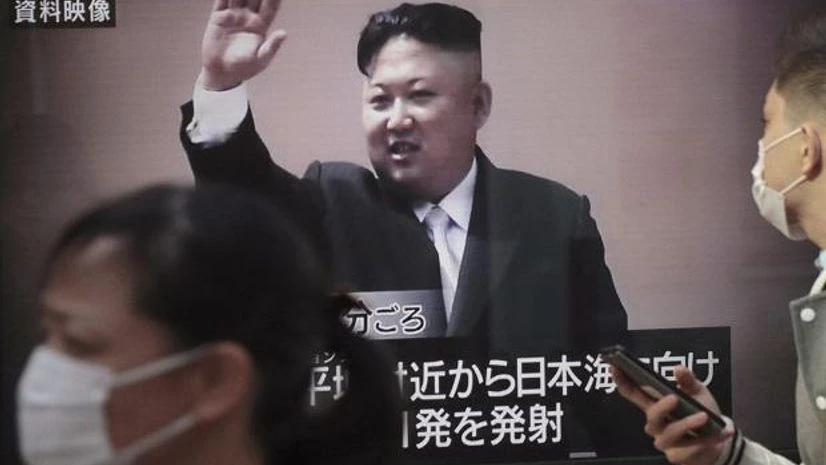North Korea fired an intercontinental ballistic missile (ICBM) on Wednesday that can reach the "whole" American mainland, in a bold act of defiance against US President Donald Trump after he put the country back on a list of state sponsors of terrorism. The latest launch drew swift global condemnation with Pyongyang's ally Beijing expressing "grave concern".
The Hwasong-15 missile, described by the state television as the country's "most powerful", was launched around 3 a.m. local time. It landed in Japanese waters but flew higher than any other missile the North had previously tested.
North Korea claimed the entire US mainland was within reach after "successfully" testing the missile that it claimed can carry a "super-large heavy warhead" to unprecedented heights of almost 4,500 kilometres.
State news agency KCNA said North Korean leader Kim Jong-un personally signed off on the launch of the missile that reached an altitude of 4,475 kilometre and flew 950 kilometre in 53 minutes.
The distance travelled appeared to be significantly greater than that of the two previous ICBMs, which flew for 37 minutes on July 4 and for 47 minutes on July 28.
Trump, together with his counterparts in South Korea and Japan and the UN Secretary General, condemned the launch. "We will take care of it," he told reporters at the White House, calling it a "situation we will handle".
He later tweeted that Democrats should join with Republicans to pass a spending measure to avert a government shutdown. "After North Korea missile launch, it's more important than ever to fund our gov't & military!"
More From This Section
US Secretary of State Rex Tillerson proposed, along with Canada, to convene a meeting of the UN Command, the contingent that controls the Joint Security Area separating the two Koreas.
UN Secretary General Antonio Guterres said the move had violated sanctions and shown "complete disregard for the united view of the international community". The UN Security Council was due to convene an emergency session later in the day.
China, a trade and fuel lifeline for North Korea, expressed "grave concern and reiterated it will continue to advocate denuclearization of the peninsula through talks rather than military options.
"China expresses its grave concern and opposition to the launch (...) and strongly urges the DPRK to observe the relevant resolutions of UN Security Council and stop actions that heightens the tensions on the Korean Peninsula," Chinese Foreign Ministry spokesperson Geng Shuang said.
South Korean Prime Minister Lee Nak-yon questioned the success of the missile launch, saying the projectile lost contact with the control centre mid-flight. Seoul later carried out live-fire drills, launching one of its own ballistic missiles.
Japanese Prime Minister Shinzo Abe called the launch an "intolerable, violent act".
Russia termed it a "provocative act" that would escalate tension on the Korean peninsula, while the Italian Foreign Minister urged the international community for a joint response.
French Foreign Minister Jean-Yves Le Drian said North Korea's weapons programme was a violation of UN resolutions and undermined the non-proliferation regime and endangered regional and international security.

)
